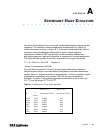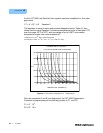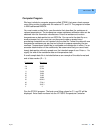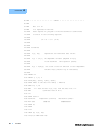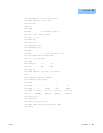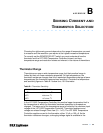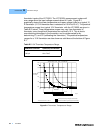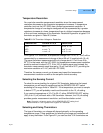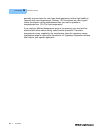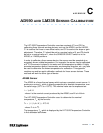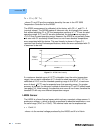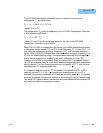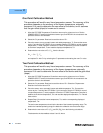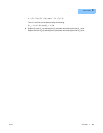
40 LDT-5525
CHAPTER C
One Point Calibration Method
This procedure will work for any linear temperature sensor. The accuracy of this
procedure depends on the accuracy of the known temperature, externally
measured. It is used to determine the zero offset of the device, and it assumes
that the gain offset (slope) is known and is correct.
1 Allow the LDT-5525 Temperature Controller to warm up for at least one hour. Set the
SENSOR SELECT switch for the desired sensor type, and RECALL the constants for the
particular device to be calibrated.
2 Select the C1 parameter. Read and record the value of C1.
3 Place the sensor at an accurately known and stable temperature, T
a
. Connect the sensor
to pins 7 and 8 of the LDT-5525's 15-pin connector. Set the LDT-5525 for normal constant
temperature (T mode) operation. Allow the LDT-5525 Temperature Controller to stabilize
at the known temperature, Ta and read the displayed temperature, Td.
4 Determine the new value of C1, C1
n
, from the formula:
C1
n
= C1 + T
a
- T
d
and replace C1 with C1
n
by selecting the C1 parameter and entering the new C1
n
value.
Two Point Calibration Method
This procedure will work for any linear temperature sensor. The accuracy of this
procedure depends on the accuracy of the known temperatures, externally
measured. It is used to determine the zero offset of the device and the gain offset
(slope).
1 Allow the LDT-5525 Temperature Controller to warm up for at least one hour. Set the
SENSOR SELECT switch for the desired sensor type, and RECALL the constants for the
particular device to be calibrated.
2 Select the C1 parameter. Read and record the value of C1. Select the C2 parameter.
Read and record the value of C2.
3 Place the sensor at an accurately known and stable temperature, Ta1. Connect the
sensor to pins 7 and 8 of the LDT-5525's 15-pin connector. Set the LDT-5525 for normal
constant temperature (T mode) operation. Allow the LDT-5525 Temperature Controller to
stabilize at the known temperature, Ta1 and read the displayed temperature, T
d1
. Record
these values.
4 Repeat Step 3 for another known temperature, T
a2
, and the corresponding displayed
temperature, T
d2
.
The two known temperatures should at the bounds of the intended operating range. The
smaller the intended operating range, the better the calibration over that same range.
5 Determine the new value of C1 (C1
n
) and C2 (C2
n
) from the following calculations.
First determine the intermediate values U and V, where



